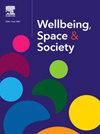Citizens’ support to nature in Aruba—A study on sustainability and wellbeing
IF 2.2
Q2 GEOGRAPHY
引用次数: 0
Abstract
Islands worldwide comprise about 6.7 % of Earth's land surface area, and are home to about 10 % of the world’s population. In addition, estimates suggest that islands host about 20 % of global areas defined as nature ecosystems. Unfortunately, extinction rates on islands are as high as 95 % of birds, 90 % of reptiles, 69 % of mammals and 68 % of plants. A collapse of biodiversity will threaten human life, health and wellbeing in future. The main aim of this article is to investigate the influence of contextual nature-related and socio-economic factors on subjective wellbeing perceptions among the Aruban inhabitants. A total of 771 residents of Aruba responded to a survey in 2023/2024. The results show that they exhibit very similar patterns in strongly prioritizing nature. Whereas 89 % of Dutch-born inhabitants reported having a very strong or strong connection with nature, this was true for 74 % of Aruba-born inhabitants, and 80 % of the people born elsewhere. Moreover, the results show that for socio-economic factors, the highest risk of wellbeing was reported to be income limitations. Only a share of 36 % of Aruba-born worked in the tourist branch, whereas 55 % of the residents born elsewhere did. Hence, in the relative intensive tourism industry in Aruba, the local communities have relatively low involvement in the tourism sector. Overall, this research contributes to deepening insights into the need for a shift towards a regenerative tourism approach, relying on the involvement and capabilities of local communities to foster sustainability and resilience to achieve the desired Sustainable Development Goals.
阿鲁巴公民对自然的支持——关于可持续性和福祉的研究
全世界的岛屿约占地球陆地面积的6.7%,是世界人口的10%。此外,据估计,岛屿占据了全球20%被定义为自然生态系统的区域。不幸的是,岛屿上的灭绝率高达95%的鸟类、90%的爬行动物、69%的哺乳动物和68%的植物。生物多样性的崩溃将威胁到人类未来的生命、健康和福祉。本文的主要目的是调查环境自然相关因素和社会经济因素对阿鲁巴居民主观幸福感的影响。在2023年至2024年期间,共有771名阿鲁巴居民参与了一项调查。结果表明,它们在强烈优先考虑自然方面表现出非常相似的模式。在荷兰出生的居民中,有89%的人报告说他们与自然的联系非常强或非常强,而在阿鲁巴出生的居民中,这一比例为74%,在其他地方出生的居民中为80%。此外,研究结果表明,对于社会经济因素来说,收入限制是影响幸福感的最高风险因素。在阿鲁巴出生的人中,只有36%的人在旅游部门工作,而在其他地方出生的居民中,有55%的人在旅游部门工作。因此,在阿鲁巴相对密集的旅游业中,当地社区对旅游业的参与程度相对较低。总的来说,这项研究有助于加深对向再生旅游方法转变的必要性的认识,这种方法依靠当地社区的参与和能力来促进可持续性和复原力,以实现预期的可持续发展目标。
本文章由计算机程序翻译,如有差异,请以英文原文为准。
求助全文
约1分钟内获得全文
求助全文
来源期刊

Wellbeing Space and Society
Social Sciences-Social Sciences (miscellaneous)
CiteScore
2.70
自引率
0.00%
发文量
46
审稿时长
124 days
 求助内容:
求助内容: 应助结果提醒方式:
应助结果提醒方式:


